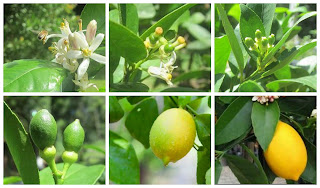Feb. Trinity I
(7th
Sunday before Easter, Sunday before Ash Wednesday)
Luke 18:18-27, 31-34
One of the highest
spiritual leaders of the people asked him, "Good Master, what must I do to
obtain eternal life?" Hoffman
Jesus answered him, "Why do you call me good? No one is good but One—God alone. You know the commandments—you shall not destroy marriage, you shall not kill, you shall not steal, you shall not speak untruth, and you shall honor your father and your mother!"
He said, "All these I have observed strictly from my youth."
When Jesus heard this, he said, "One thing however you lack: Sell all of your possessions and give the money to the poor; thus will you achieve a treasure in the spiritual world—then come and follow me!
He was sad about these words, for he was very rich. And when Jesus saw him thus, he said, "What hindrances must those overcome who are rich in outer or inner possessions, if they want to enter into the kingdom of God. Sooner would a camel walk through the eye of a needle than a rich man be able to find the entrance to the kingdom of God!"
Those who heard this said, "Who then can be saved?"
He said, "For humans alone, it is impossible. It will be possible, however, through the power of God working in them."…
Then he took the twelve to himself and said, "Now we are going up to Jerusalem, and everything which the prophets have written about the Son of Man will fulfill itself: He will be given over to the peoples of the world; they will mock and taunt him, they will spit upon him and scourge him and kill him, but on the third day he will rise up from the dead."
Yet his disciples understood nothing of all this. The meaning of his words remained hidden from them, and they did not recognize what he was trying to tell them.
4th February Trinity
February
27, 2022
Luke 18:18-34
The blossom is the glory of the plant. Rich color, fragrance, and beauty open themselves to the sun. But what happens next?
The petals wither and drop away. Tiny hard green fruits appear, containing even tinier seeds. Yet within that seed is condensed the entire power of the life of the whole plant.
This is also a basic pattern, a basic rhythm of development in our own human lives: a rich period of glorious development, followed by an apparent loss. Yet for us too, such a loss of glory is a necessary prelude. For Life is consolidating and condensing itself, gathering force and strength. Life is preparing a new phase, a next form; for the law of living things is a continuous changing out of forms. Old forms break apart so that new ones can arise. The death of one form is only a temporary state, for Life itself predominates.
In this reading, Christ recognizes that the rich young man is ready to lose the richness of his blossoming in order to take the next step on the transforming path of Life. And Christ encourages him by saying, ‘After you have voluntarily given away the old form, come and follow Me!’
For Christ Himself walks before us on this path of the transformation, this transubstantiation of forms. This is the path of letting go the old and taking up the new, of dying and becoming. Christ knows that this is the law of living things because He Himself is Life itself—the power of Life in all creatures. He too has voluntarily immersed Himself in the changing of forms, which is so often accompanied by birthing pangs. He willingly subjects Himself to the human condition, to the suffering that accompanies the breaking of the form, even unto the death of the bodily form, so that a new form can arise. For with Him a new form will indeed arise. On Holy Thursday he will pour His soul into a new form of His body—bread and wine. On Easter Sunday He will form a living resurrection body. And at Ascension, the whole earth will become His body.
We
can willingly and trustingly follow Him on this path of the shattering of old
vessels and the creating of the new. Because He is the Way, and the Truth of
Life. (John
14:6)
So now, as the poet says,
Why cling to one life
Till it is soiled and ragged?
The sun dies and dies
Squandering a hundred lives
Every instant.
God has decreed life for you
And He will give
another and another and another.*
























_-_James_Tissot_-_overall.jpg)


